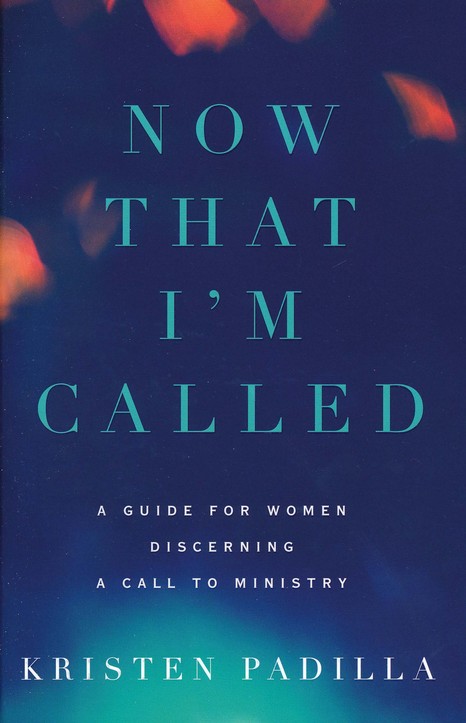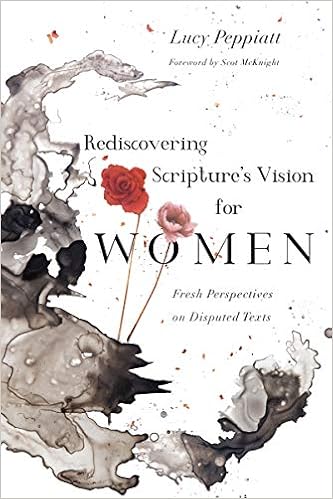Surprised by Jesus Again: Reading the Bible in Communion with the Saints by Jason Byassee
I encountered this book as a skeptic, but I was quickly disarmed, even charmed. I did not find every reading persuasive, but I was won over by his central thesis. Byassee winsomely, playfully invites Christian readers of Scripture to delight in its mysteries and to participate in God's passionate quest to lavish his love an on ever-widening circle of faithful followers. He is right to chide biblical scholars for our lack of imagination. Reading this book has reignited my passion for a pedagogy that ushers fellow readers of Scripture into a place of wonder. A finalist in the Christianity Today 2019 Book Awards, this book is well worth reading.
The Liturgy of Creation by Michael LeFebvre
Given LeFebvre's brilliant doctoral work on Old Testament law, I expected this book to be carefully researched and lucidly written. I was not disappointed. LeFebvre skillfully brings into focus the parts of the Pentateuch readers are most likely to skip, showing how the purpose of each calendar notation in the Torah, including its opening chapter, is liturgical―to order the work and worship of the covenant people. His reassessment of Genesis 1 moves beyond the stalemate in the creation debates without recourse to extrabiblical or scientific arguments. His thesis grows organically from a close reading of the biblical text. LeFebvre shows himself to be a master teacher with pastoral sensitivity, able to patiently explain what he has so carefully studied. This book will change the way I teach the Torah. I can't wait to share it with my students!
Blood Brothers by Elias Chacour
A powerful and enlightening story of a Palestinian Christian living in the aftermath of WWII. His story unveils the dark side of the Israeli-Palestinian conflict, its origins outside the land of Palestine, and the way both sides have been caught in the crossfire between nations whose complex interests are not above board. Chacour's hope is that Arabs and Jews can learn to live together as neighbors. He has devoted his entire life to this aim: PEACE. Such an eye-opening and hope-filled book!
Given LeFebvre's brilliant doctoral work on Old Testament law, I expected this book to be carefully researched and lucidly written. I was not disappointed. LeFebvre skillfully brings into focus the parts of the Pentateuch readers are most likely to skip, showing how the purpose of each calendar notation in the Torah, including its opening chapter, is liturgical―to order the work and worship of the covenant people. His reassessment of Genesis 1 moves beyond the stalemate in the creation debates without recourse to extrabiblical or scientific arguments. His thesis grows organically from a close reading of the biblical text. LeFebvre shows himself to be a master teacher with pastoral sensitivity, able to patiently explain what he has so carefully studied. This book will change the way I teach the Torah. I can't wait to share it with my students!
Blood Brothers by Elias Chacour
A powerful and enlightening story of a Palestinian Christian living in the aftermath of WWII. His story unveils the dark side of the Israeli-Palestinian conflict, its origins outside the land of Palestine, and the way both sides have been caught in the crossfire between nations whose complex interests are not above board. Chacour's hope is that Arabs and Jews can learn to live together as neighbors. He has devoted his entire life to this aim: PEACE. Such an eye-opening and hope-filled book!
Hope for the Oppressor by Patrick Oden
Hope for the Oppressor is a brave undertaking. Patrick Oden suggests that efforts to liberate the oppressed will never be successful until oppressors experience liberation, too. Without true liberation of all parties, new cycles of coercion result. But there's hope. He locates that hope in Christian community, where our notion of selfhood can be reconceived and our fractured selves healed in light of God's holy love. Oden's thesis is grounded in theologically rich readings of biblical texts and skillful engagement with historical and systematic theology. His book issues a life-giving invitation for all of us — those with privilege and those without — to participate in a different kind of kingdom. His book has the potential to fuel a revolution for those who dare to reexamine their lives in light of his claims.
Phoebe by Paula Gooder
How does a woman with a slave name end up delivering Paul's letter to the Romans? How does she have the means to undertake such a journey? How was she educated to the point that Paul chooses her to explain his letter? What did she think of the church in Rome? Gooder answers all these questions in a compelling way. She kept my attention from beginning to end. Friends who are not biblical scholars have enjoyed the book, too. Together with Holly Beers' A Week in the Life of a Greco-Roman Woman and Ben Witherington III's Priscilla, 2019 was my year to discover what is was like for women of the Roman Empire in the first century.







.jpg)

.jpg)






















